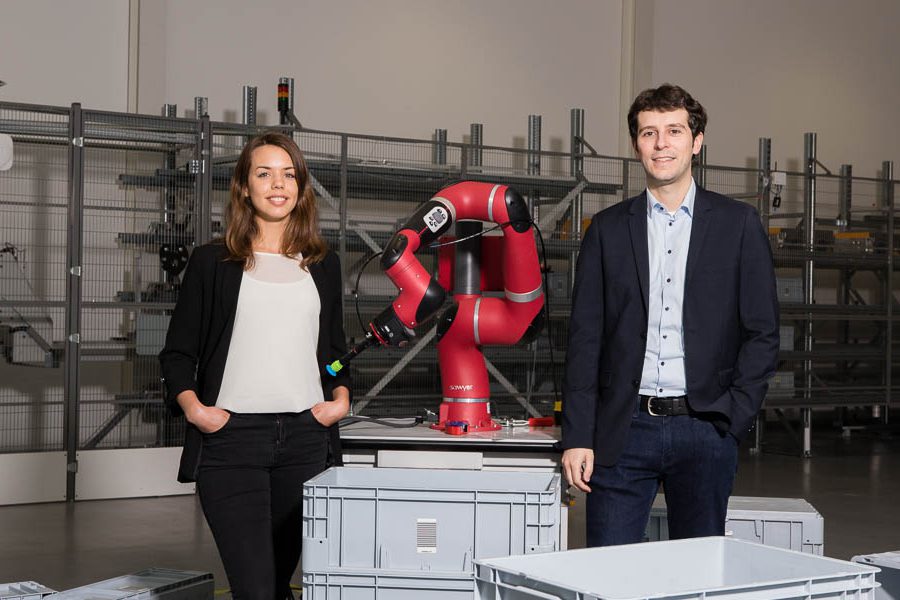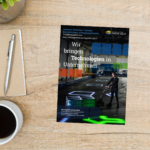Machine learning is the key to intelligent logistics. With the establishment of a Research Clan for machine learning, the Center of Excellence Logistics and IT) is responding to the rapid development of this new basic technology.
Machine learning, or ML, has recently become interesting for companies as well. What exactly is behind the new technology?
Christoph Pott: Machine learning, an area of artificial intelligence, is about – or more generally about technical and artificial systems – recognizing patterns and laws from existing data and learning from them without humans having to enable them to do so, i.e. program them. The foundations for this were already laid back in the 1980s. Today, learning systems are already being used very successfully for speech recognition in smartphones or for spam filters in PCs. Thanks to more powerful processors, super-fast databases and improved algorithms, machine learning is now of interest to more and more companies in production and logistics as they look for ways to optimize processes and save costs.
Anike Murrenhoff: There are currently many different conceptual and methodological approaches to machine learning in numerous industries. However, research and application, especially in logistics, is still in its infancy. Therefore, the topic of machine learning for logistics and the associated information logistics in our new research clan will be processed and further developed by bringing experts together. Within the framework of the Center of Excellence Logistics and IT) we create formats and opportunities to network scientists and work on tomorrow’s topics with a common research agenda.

Christoph Pott is head of the Center of Excellence Logistics and IT, Anike Murrenhoff heads the Machine Learning Research Clan.
What are the specific goals of the research clan?
Anike Murrenhoff: First of all – as with all research clans at the Center of Excellence – it is about gathering together the current state of research as well as existing methods and technologies in this science location of Dortmund, but also on national and international levels. After that, we want to specifically introduce this topic to scientific communities within and outside the Center of Excellence.
Christoph Pott: One of the tasks of the Center of Excellence Logistics and IT is to coordinate the research activities for the particular topic area – especially with regard to the use of the research infrastructure at this location.
Anike Murrenhoff: At the same time, we address students and participants at the Graduate School of Logistics and get them involved.
Will there be new applications in the research clan as well?
Anike Murrenhoff: We will definitely develop and present a demonstrator that makes machine learning tangible. We also want to offer a training and consulting format that companies can use to get started on in this topic. Behind the scenes we develop concepts in which machine learning is used, for example, to optimize decentrally controlled systems and ultimately to support human decisions as well.
Christoph Pott: Last but not least, we also want to prepare the topic of machine learning in such a way that we can communicate the main features, applications and benefits of the new technology to the general public.



